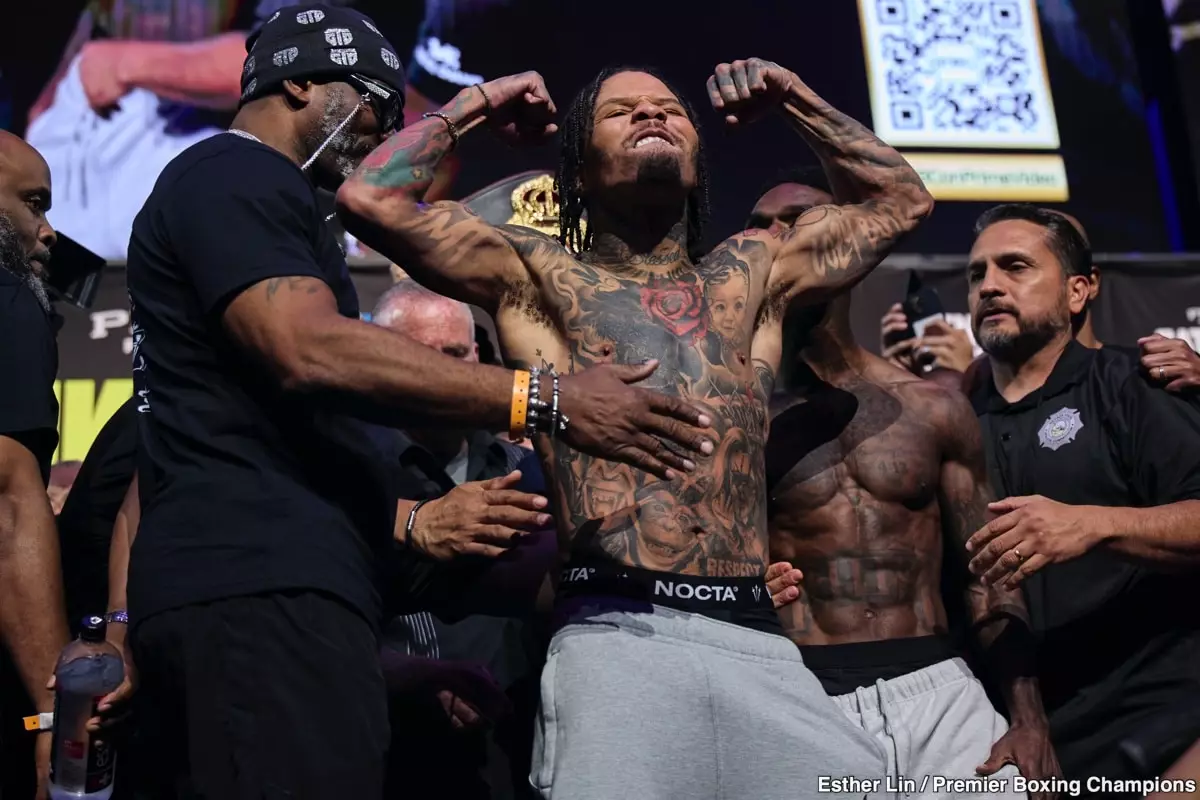In the world of professional boxing, where the determination of true skill can often be clouded by the influence of promoters and matchmakers, Gervonta “Tank” Davis stands out as a case study in perceived greatness. This scrutiny has recently intensified, particularly concerning Davis’s latest matchup against Lamont Roach. Boxing commentator Tim Bradley has voiced significant criticism, framing Davis’s career trajectory as a carefully curated narrative that falls short of true competitive integrity.
Unpacking the Matchmaking Strategy
At the crux of Bradley’s argument is the concept of purposeful matchmaking, a strategy utilized by promotions like PBC (Premier Boxing Champions) to construct profitable narratives around fighters like Davis. While Davis boasts an impressive record of 30 wins and 28 knockouts, Bradley posits that the level of competition faced is far too low for such a record to convey authenticity. Rather than battling formidable opponents, Davis has been pitted against fighters who present minimal risk, elevating his status without the sweat of genuine competition.
This pattern raises questions about the motivations behind such matchups. Why has Davis not faced top-tier opponents earlier in his career? Bradley notes that five to six years ago, a fight with Vasyl Lomachenko would have been viable, yet it appears that PBC opted for a path of least resistance for their marquee fighter. This avoidance of challenging opponents has caused critics to label Davis as a “30-year-old prospect” rather than a true champion, a title that demands not just talent but also exposes one to perilous challenges.
Bradley’s assertion extends beyond mere criticisms of matchmaking; it touches upon a striking illusion that permeates Davis’s fights—one that has been skillfully crafted over the years. By carefully selecting opponents devoid of genuine threat, PBC has positioned Davis as a fierce competitor, effectively creating a façade that can be easily misconstrued by casual fans. Supporters who do not delve deeply into the sport might misinterpret these victories as demonstrations of skill against elite-caliber boxers. However, the reality is starkly different; every fighter that has stepped into the ring with Davis has been handpicked, scripted to ensure he remains the overwhelming favorite.
This orchestrated narrative does not just reflect on Davis but also implicates the sport of boxing itself, revealing a system in which promoters prioritize financial gain over the integrity of competition. Bradley’s comments encapsulate this sentiment, illuminating the need for transparency and accountability in a sport that has thrived on the thrill of true competition.
When examining Davis’s career milestones, historical context becomes crucial. The match against José Pedraza in 2017 is frequently brought up as a notable moment; Bradley argues that even then, the matchup was heavily skewed in favor of Davis. Pedraza’s inability to deliver a significant challenge paints a picture of Davis’s career where high-stakes bouts are systematically avoided. This history of exclusion raises pertinent inquiries: What does this mean for a fighter seeking legitimacy in an already polarized sport?
Moreover, the conversation around potential matchups, such as that with Shakur Stevenson, highlights the void where competitive spirit should reside. The time to negotiate meaningful fights against top-level adversaries is continually speculated upon, yet remains unfulfilled. Bradley provocatively points out that missed opportunities—like the theoretical fight with Lomachenko—further dilute the essence of what it means to be a champion.
As fans of boxing, our desire to witness true competition remains staunch, and fighters like Davis should aspire to fulfill that expectation. The call for higher-stakes fights is not merely a demand for entertainment but a yearning for authenticity within the sport. Bradley’s critiques underscore the importance of fighters stepping outside their comfort zones, breaking away from the confines of “protected” matchups to challenge themselves and, in turn, elevate the legitimacy of their careers.
Ultimately, Gervonta Davis’s journey in boxing might well serve as a cautionary tale—one that illustrates how the manipulation of careers through selective matchmaking can lead to the illusion of greatness while potentially undermining true accolades. If boxing is to retain its stature, it must prioritize real competition over mere profitability. As fans and commentators alike hold fighters to account, we can hope for a future filled with matchups that honor the spirit of the sport.

